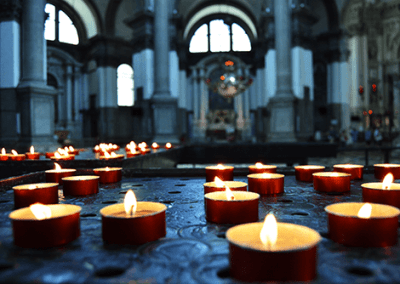The second of eight indications that mankind has an inner sense of God, is a certain awareness of sacredness in the world.
Perhaps the greatest historian of religion, Mircea Eliade (1907-1986), edited the 16-volume MacMillan Encyclopedia of Religion and wrote many important studies on the common elements of religion not only throughout the world, but throughout history.
Like Rudolf Otto, he believed that there is something inside all human beings that makes us aware of the spiritual, transcendent, and sacred.
This produces an interest in religion – religious beliefs, community, symbols, music, architecture, and community worship – ritual.

Eliade showed that this attraction to religion is not based on fear of death or the unknown – like a crutch or “wishful thinking” to overcome anxieties. He concurred with Rudolf Otto that the attraction to religion does not come from a negative impulse (such as fear or anxiety), but from a positive fascination with the mysterious higher power who we “instinctively” believe is in us, with us, inviting us, and guiding us.
This interior awareness – this natural belief – is so great that if we deny or reject it, we find ourselves alienated – not at home – in the cosmos around us.
Eliade’s prediction was verified by a study published in the American Psychiatric Association’s American Journal of Psychiatry in 2004 which concluded that non-religious affiliation leads to marked increases in suicide rates, familial tensions, drug use, and a sense of meaninglessness and despondency.
In our next post, we’ll be moving on to the third indication of an interior sense of God, which is a certain awareness of a cosmic struggle between good and evil.

